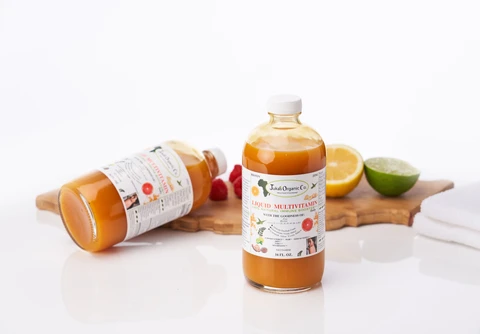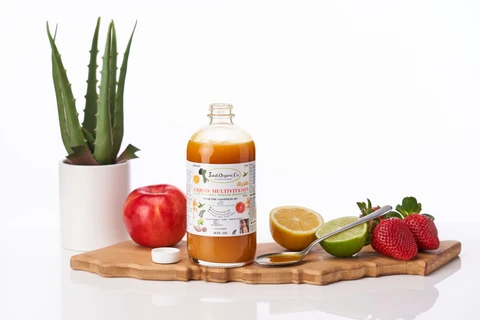Why are Liquid Organic Vegan Vitamins Actually Better

Fascinating time in the prior few years organically enhanced the gold standard for healthy living. If you’re concerned about consuming clean, you eat organic. And presently, this has deceived into yet another industry.
Athletes have perpetually had a complex relationship with supplements. Several researches suggest that used correctly and dietary boosts can raise, too, your general health and athletic performance. Different studies show that taking your natural organic vitamins is the best (and most harmless) way to make gains. Some headlines still remind us of dangerous ingredients packed into our pills.
Here are seven nutrients that you may need to supplement while on a vegan diet.
- Vitamin B12. Foods often touted to be rich in vitamin B12 include unwashed organic produce, mushrooms grown in B12-rich soils, nori, spirulina, chlorella, and nutritional yeast.
- Vitamin D.
- Long-chain omega-3s.
- Iodine.
- Iron.
- Calcium.
- Zinc.

1. Check for fillers
One of the most critical factors impacting supplements—organic or not—has to do with additives like binding agents and fillers, an exercise physiologist and nutrition scientist. In false supplements (supplements formed by chemical synthesis), these fillers perform fructose, glucose, or other substances. And they provide a whole slew of side effects: decreased retention, allergic reactions (stored lactose can be a filler, for instance), and—most importantly—less room for the vitamin or mineral itself.
2. Natural can be more helpful—but it’s not regularly better
A vitamin C supplement made with organic acerola berry matter instead of synthetic vitamin C might sound promising. Still, in reality, that difference could have very little impact on your health. Though the idea of gluten free multivitamins has been demonized, your body can handle and metabolize synthetic vitamins just fine.
3. Organic is a decision, but not the only option
No one can fault you for wanting to eat cleaner but remember: Cleaner doesn’t always equate to healthier. Research on the topic is incredibly divided. Some studies suggest Liquid multi vitamin is more nutritious—other research shows the opposite. “Ultimately, we buy organic because it’s cleaner, safer for the farmers, and safer for the environment. And if you want an herb- or plant-based supplement to be from a pesticide- and fertilizer-free plant, that’s fine.
4. Remember: Food is almost always better
Vitamins and minerals should, whenever practicable, be consumed from a healthful diet, both experts recognize. If you want in something, see your doc about which supplements may be best for you. (Usually only suggests Folic acid for women of child-bearing age; vitamin D, if you’re sun-phobic; and vitamin B12, especially for vegans.)
Vegans and omnivores same should be on guard against nutrient deficiencies. A well-planned diet can go a long way for vegans, moving to avoid the most common pitfalls. That means an abundance of vegetables, whole grains, beans, and fruit—plus a small number of nuts or seeds each day. But even with all this taken care of, some vegans will fall short on a few key vitamins especially B12, Vitamin D, calcium, iodine, protein, and zinc. Hence your best bet is to consume liquid multivitamins.




